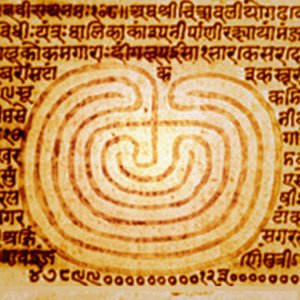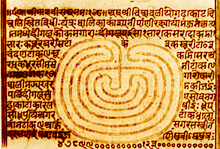Pujari .:. Priestess

Growing Acceptance of Hindu Priestesses (Pujaris)
Thursday, 26 April, 2001, 12:50 GMT 13:50 UK
Hindu women spread the word
Women are trained to perform traditional ceremonies
by Lovejit Dhaliwal in Pune
Bright and busy, Sunitee Kadgil is struggling to fit in a number of people who want her to perform Hindu death rites, house-warmings and naming ceremonies.
A Hindu priest, she is one of a growing number of Indian women who are queuing up to learn all about the clergy.
Many of them are trained at the Dyanaprabhodhin
Jayavantrao Leile is head of the centre and started to run a course for training priests some 10 years ago.
He recalls that even in the inaugural year, there was a considerable show of interest from women. Since then, every year, roughly a third of the intake is from women.
The course itself lasts just four-
After that, the students are fully qualified to practice.
Eager to learn
Many women like Sunitee Kadgil become involved because they were curious and keen to learn something new.
Others, like Varsha Gadgil, cite more personal reasons.
Her interest stems from a shoddy service performed by a male priest at a ceremony after her father-in-law died, 10 years ago.
"He didn't explain anything and rushed everything," she says. "So, I wanted to learn and explain to people as much of the ceremony as I could."
Sunitee Kadgil remembers the first time she was asked to perform as a priest.
"It was at a relative's house, but even then I was so nervous! I use to refer to my books all the time, but now all that has changed," she says smiling.
Growing acceptance
The concept of a female priest is not a new one.
Nutan Vimal Motilal is also a practising priest and points out that women priests were written about in the sacred Vedic texts.
But later men dominated the profession, declaring that priests could only be male and only from a particular Hindu caste.
"This is actually not true. And it's only recently that people realise that women too are equally entitled to take up the priesthood and women are also being tolerated more," Ms Motilal says.
Women are now more in demand than male priests, she adds.
This is a statement which the head of the Dyanaprabhodhin
He has been approached by many - both individuals and temples for women priests.
He remembers an incident when a well-known Pune temple sought women priests to perform a particular rite.
Altogether 21-women went to the temple to perform the rite and Mr Leile says, "the temple officials were so impressed they wanted to use women priests every year".
'Honest and sincere'
Many individuals also seek out women priests.
Prabhakar Balkrishan Karambelkar recently had the sad occasion to call for a priest when his wife died, and deliberately chose a woman priest.
"They were more honest, sincere and the clarity with which they performed the ceremony was also refreshing," he says.
The growing popularity of women priests is also being linked to the fact that men are now attracted to more lucrative careers.
Both Sunitee Kadgil, who has been practising for 10 years, and Nutan Vimal Motilal, who has been practising for two, say they have never had a negative experience.
However, women priest have not been welcomed everywhere.
Many people in rural areas are suspicious of women priests and feel they make the whole ceremony unreligious.
"But once we explain that actually women priests are allowed and use examples from the texts and also from their own everyday lives, they are soon convinced that women priests are as legitimate as male priests," says Ms Motilal.
Because of the popular demand, Sunitee Kadgil has begun classes for women within her community.
She runs two classes with 15 pupils each, who also help and participate in ceremonies that she performs in people's houses.
With men being drawn away from a spiritual career, more and more Hindu women are stepping forward to take on the mantle of preserving their religious tradition.
news.

April 09, 2009
Anju Bhargava joins Presidential Council
President Barack Obama today announced additional members of the President’s Advisory Council on Faith-Based and Neighborhood Partnerships.
The Advisory Council is part of the White House Office of Faith Based and Neighborhood Partnerships and is composed of religious and secular leaders and scholars from different backgrounds.
Anju Bhargava, president, Asian Indian Women in America, New Jersey
Anju Bhargava, President, Asian Indian Women in America, a Pioneer Community Builder and Management Consultant is Appointed to President's Council on Faith-Based and Neighborhood Partnerships.
The President’s Council on Faith-Based and Neighborhood Partnerships is a Council of advisers to the President on issues relating to the Office of Faith-Based and Neighborhood Partnerships. Including social service provision, community development, social change and relevant public policy issues. The President’s Council will form Taskforces in order to study in depth key topics and make recommendations
Anju Bhargava is the President of Asian Indian Women in America (AIWA) and has worked extensively in areas such as employment, career development, cultural acculturation, integration, health, education and general welfare to develop a vibrant community.
Ms. Bhargava was the only Indian-
She is the first Hindu woman Pujari in New Jersey.
Ms. Bhargava is a graduate of Stella Maris College, Madras University, India and Rutgers University (MBA), with training at Harvard’s Kennedy School of Government, American University, Kellogg, Graduate School of Management and Dale Carnegie Institute.
see also : www.
.:.



No comments:
Post a Comment